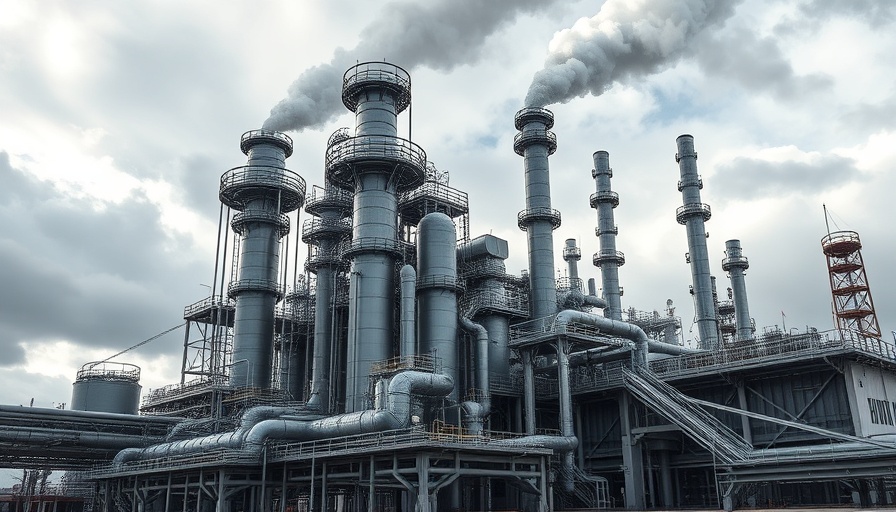
Ancient Bacteria: The New Key to Greener Chemistry
In an age where environmental sustainability is crucial, innovations like those from the German-Danish startup Again promise a radical shift in how chemicals are produced. This company is pioneering a method to transform carbon dioxide (CO2) emitted from petrochemical facilities into useful chemicals using ancient bacteria. By building a new bioreactor plant in Texas City—a hub for petrochemicals—they aim to not only reduce emissions but also capitalize on the growing demand for sustainably produced products.
How It Works: The Science Behind the Bioreactor
The process is both ingenious and straightforward. The Again bioreactor will capture CO2 from one of the Texas City refineries and combine this with hydrogen. The mixture is then fed to a special strain of ancient bacteria that efficiently convert the gas into commercial-grade compounds, such as acetate. Acetate has vast applications, serving as a base chemical for countless products, from plastics to essential household items like cosmetics and paints. This transformation is touted to slash emissions by 80%, making it an attractive option for the eco-conscious market.
The Business Case: Why This Matters
The establishment of this facility is significant in the context of environmental policy and corporate responsibility. As industries look for ways to mitigate their carbon footprint, solutions like Again's technology show that innovation can align with business interests. According to co-founder Max Kufner, there is increasing demand in the U.S. for onshore-produced chemicals that are sustainably made. By investing in Texas, Again is positioning itself to be a leader in this sector, potentially influencing how chemicals are sourced and produced globally.
Future Predictions: The Impact on the Chemical Industry
Looking ahead, the successful implementation of Again's bioreactor could signal the beginning of a major shift in the chemical industry. If large-scale adoption occurs, we could see a significant reduction in the reliance on fossil fuels for chemical production, thereby shaping a greener future. Moreover, it could encourage other startups and innovators to explore bioengineering solutions that leverage similar principles, creating multiple avenues for environmental sustainability.
As we continue to navigate the complexities of climate change, the intersection of biotechnology and chemical production is becoming ever more critical.



Write A Comment